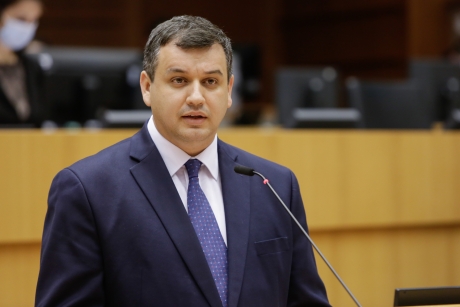The Council of the European Union has identified serious deficiencies in the application by the Netherlands of the Schengen acquis in the field of common visa policy, as well as deficiencies in the field of return, and makes recommendations in separate decisions adopted on December 19, 2022, told Agerpres.
The deficiencies were identified following evaluations carried out between June 23-28, 2022 regarding the visa policy and in 2021 regarding the field of return.
The information was made public on Friday by MEP Eugen Tomac on social media, where he also posted links to the EU Council website where the two documents are available. In his opinion, these “can and must be used by Romania and Bulgaria in next week’s negotiations in Sweden” in the efforts of the two countries to join Schengen.
“Of course, I cannot but appreciate the political decision of the Netherlands to currently support our country’s accession to the Schengen area. However, we cannot forget that for 11 years this right was unjustifiably denied to us by a country which today is being ‘condemned’ for serious deficiencies that concern the protection of the Schengen area itself, ” says Tomac.
“The Romanian and Bulgarian governments must act in a coordinated and efficient manner. It is clear that we can and must enter the Schengen area only together. The Netherlands opposes Bulgaria’s accession, and their decision directly affects us as well. Therefore, I consider that, if on January 26 at the JHA Council, we do not have a conclusion and a calendar for rectifying the discriminatory vote of December 8, 2022, then the only and fastest way to enter the Schengen area remains bringing the matter to the attention of the Court of Justice of the European Union.”
A week ago, Tomac announced that at a meeting of December 19, 2022, the Council of the European Union adopted a decision making recommendations to Austria to remedy the deficiencies identified in a 2020 evaluation of this country’s application of the Schengen acquis in the field of returning citizens of third countries.
All these documents will be sent to the European Parliament and the national parliaments, and the countries concerned – Austria and the Netherlands – have one or two months to send the European Commission and the European Council action plans to tackle the identified deficiencies.
The Swedish Presidency of the EU Council organises in Stockholm an informal meeting of the EU justice and home affairs ministers on January 26 and 27. The home affairs agenda for the first day of the meeting includes migration and asylum, with emphasis on reducing the pressure of irregular migration to the EU through effective cooperation with third countries on return. The ministers will be invited to discuss a key component of EU migration policy – the need for effective and well-functioning return and how to make full use of the visa leverage mechanism. On January 27, the ministers of justice will address judicial cooperation and the fight against organised crime, according to the website of the Swedish presidency.

